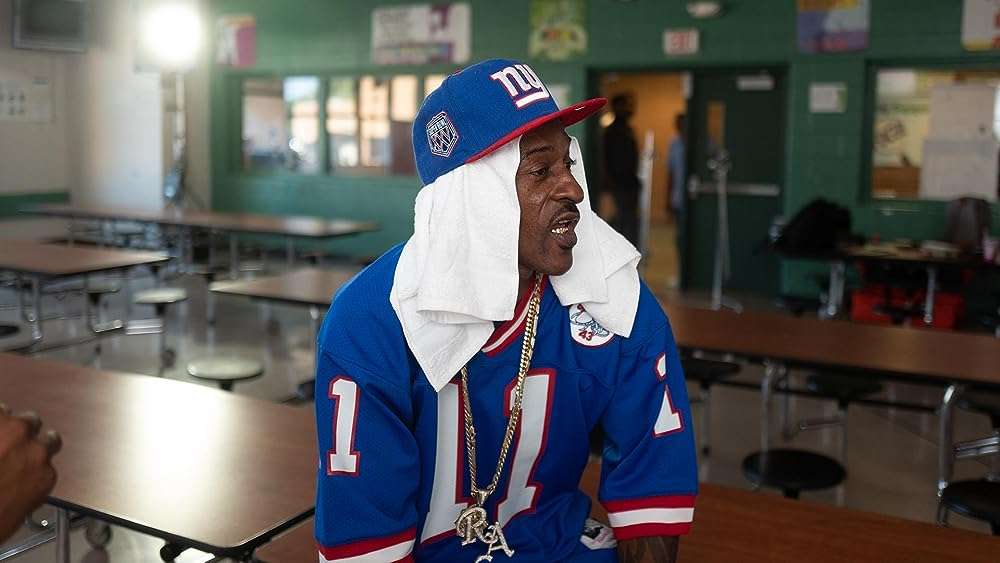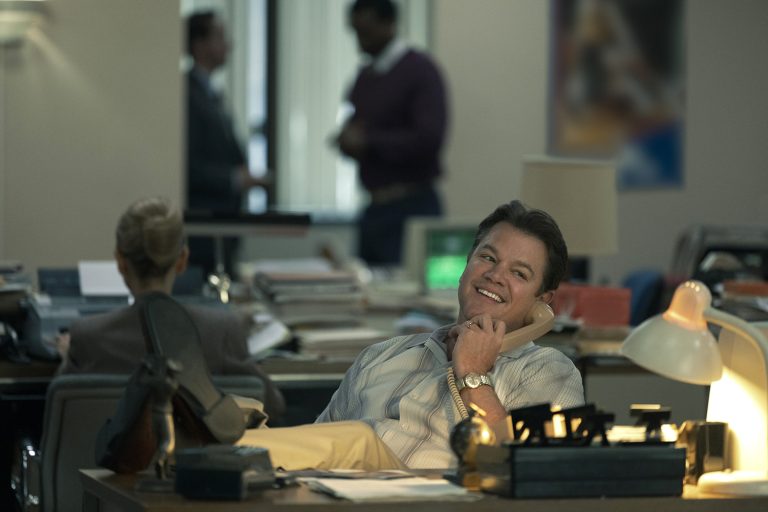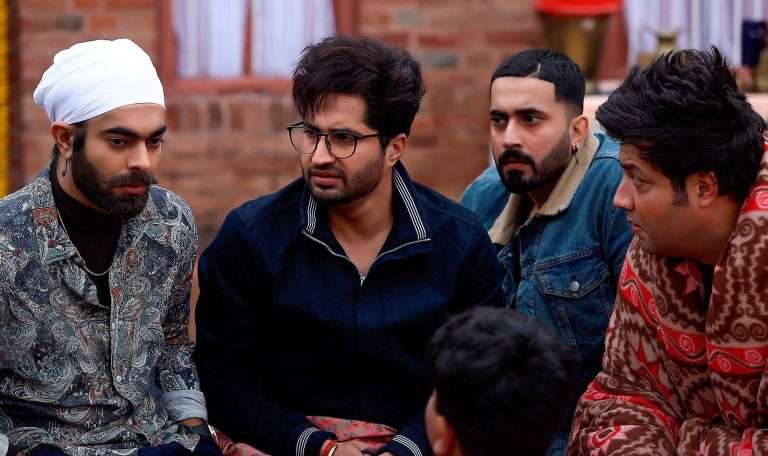In the documentary, one of the talking heads, while explaining the hip-hop and music scene of the late 80s to the early 90s, described DJ Marly Marl as “Dr. Dre before Dre” and the Juice Gang as “Wu-Tang before Wu-Tang.” That puts into perspective both the longevity of a genre of music so involved as a voice of anger and expression and how, through the influences of some unique individuals, it became a source of fun and entertainment.
One of those unique individuals, as described by the subjects being interviewed, is Marcel Theo Hall, or Biz Markie. The documentary starts with his origins in beatboxing and his subsequent appearance in music groups alongside rappers like Rakim and Doug E. Fresh. The documentary very much focuses on the likeability of Markie and how much of his interest lies in collecting or hoarding, be it toys or jewelry. Markie’s nickname as the “clown Prince of Hip-Hop” is because of his jovial and gregarious nature, his ability to elicit one-liners, and to humorously execute and defeat his opponents at battle raps.
Later, even while he made albums or accompanied tracks with his beatboxing, they always had a sharper, more humorous bent, which gave rise to the genre of hip-hop dealing with comedy and wordplay. True to that nickname, the documentary too explores the life of Biz Markie in a variety of ways: celebrity interviews, animated recreations, and puppet reenactments, with director Sacha Jenkins trying his best to show the multicultural appeal of the man and thus taking swings in the narrative that are both hits and misses.
The sections of this documentary that are far more interesting are the events surrounding Markie: the rise of hip-hop in New York and Long Island, the arrival of DJ Marly Marl and the Juice Gang, and the rise of comedy hip-hop, which Markie was a pioneer in. In these segments, Sacha Jenkins’ documentary shines, especially when he chooses to use animated reenactments of conversations that are being intoned by the subjects. The animation cleverly resembles the artwork on Markie’s album covers.
One of the best sections of these animated reenactments doesn’t even feature Biz Markie but Doug E. Fresh. In an interview, Fresh describes how he takes into account his influences for humming and beatboxing, how he can identify the bass line, the piano, and the sax along with the beat stacked upon each other, and the animation showcasing him identifying it via thought bubbles is a fascinating and creative one. At the very least, it rouses interest in an animated exploration of this era of music.

There had been a sneaking worry within this writer that the documentary might choose to avoid depicting the copyright infringement case that had been placed on Markie by Gilbert O’Sullivan for sampling his track, as this documentary is essentially supposed to be a celebration of the man’s life. Thankfully, the documentary chooses to delve into that incident and doesn’t shy away from depicting how the sampling of tracks in hip-hop both harmed and unwittingly helped the original artists. It also shows a newer evolution in the music industry.
The second swing that Jenkins takes is a reenactment of the final days of Markie in the hospital, with Markie being imagined as a muppet-like figure on the hospital bed, the figure being visited by his real wife, Tara Hall, consoled, and talking with doctors. Thematically speaking, Markie’s depiction in media in later years as a kid-friendly ambassador of hip-hop, his entry into mainstream pop culture through his hit song “Just a Friend,” his appearance in “Men in Black II” as an alien disguised as himself who could only speak via beatboxing, or his guest appearances on Sesame Street theoretically give credence to this reenactment.
Practically, though, it feels like a flawed attempt at humorously trying to devote a part of the man’s life to something that has no photographic or video evidence for posterity. For this writer, it just felt like the classic case of “Why even try to do it?”
Reiterating his popularity, the documentary unequivocally proves Markie’s crossover appeal and his footprint on pop culture, whether actively or passively, through interviews with his peers and his family. And while there are events that have not been covered for the runtime or storytelling purposes of the documentary, it is rare to find a figure in the music or hip-hop community so universally loved. It is, however, not rare to find artists like Biz Markie being unapologetically themselves, and if any lesson could be taken from this well-made, somewhat frothy documentary, it’s this one.





![JFK [1991] Review: A Riveting Account of an Interesting Conspiracy Theory](https://79468c92.delivery.rocketcdn.me/wp-content/uploads/2019/02/jfk-screenshot-1-768x320.jpg)
![Goliath [2022]: ‘Venice’ Review – A Stark Vision of a Land Conspired of Violence](https://79468c92.delivery.rocketcdn.me/wp-content/uploads/2022/09/Goliath-2022-Movie-Review-768x322.jpg)
![Speak No Evil [2022]: ‘Sundance’ Review – A Brilliantly Twisted Horror Film That Will Haunt Your Vacation Trips](https://79468c92.delivery.rocketcdn.me/wp-content/uploads/2022/01/Speak-No-Evil-Sundance-1-768x432.jpg)

